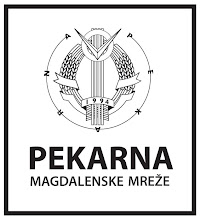One of the things I was interested in here
was the attitude Slovenians have towards the refugees.
As far as I understand, Slovenia does not
host a large number of refugees. They usually transit the country to get to
places where they hope to have chances of a decent life, such as the wealthier
Germany, Austria or the Northern countries of Scandinavia.
Back in March, Slovenia closed its borders
for the refugees who want to transit the country. It will only keep its doors
open to people who want to ask for asylum in the country, or refugees "on
humanitarian grounds and in accordance with the rules of the Schengen
zone".
Slovenia has a high unemployment rate
(around 12.9%), so it only makes sense that the refugees will not have as many
chances to be properly integrated economically speaking. But what about otherwise?
Are Slovenes open to welcome and embrace hordes of people fleeing war and
economic hardship?
Not surprisingly, the matter is split. I
cannot speak for the whole population of course, I cannot do that even for my
country, let alone for one that I’ve inhabited for a bit over two months. But
from what I understand and seen around, there is a lot of conservativism and
skepticism (to say the least) around the subject. People are afraid of the
unknown, and I say that to be mild, and justify an act that I personally
consider cruel, profoundly selfish and ignorant – to embrace your privilege and
turn your face away from the people in need.
Fortunately I’ve seen around me lots of people
that are willing to fight against ignorance and intolerance, and are actively
taking measures to change mentalities and to welcome the refugees.
Last month there was a protest in
Ljubljana, in front of a building hosting a number of refugees. People gathered
with hateful slander sending the refugees home with their speech and banners. Fortunately
though, the welcoming group was larger, and counteracted.
In Maribor I have participated to 3
activities revolving around the spreading of a tolerant speech, together with
my organization and a number of other ones. And more similar actions will
follow.
The first one was a sort of
performance/flash mob – on a sunny weekend day, when people would sip their
coffees in one of the central squares, individuals of a group of over 10 people
stood up, took the microphone and spoke their mind about intolerance and
tolerance, welcoming and understanding. I and two other people would then go
and share colored balloons, which spread quickly throughout the square, as
toddlers would come and ask for their share. I would have loved to understand
the words of the speeches, but they were in Slovene so the only thing I could
do is ask here and there. But people stopped and listened, some of them at
least, and they applauded quite a few of times.
Then there was the Day of Change (Dan za spremembe), a day of volunteering, this year revolving around the theme of
respect, namely solidarity with the refugees. A number of organizations and
volunteers met, created banners with all sorts of related messages and then marched
around the center. A cooking workshop was also organized, and migrants from
different countries, among which Syria, Somalia and Iran have taught
participants how to cook their local dishes. At the end everyone ate, and the
food was truly amazing! Me and Michal have interviewed people involved in
making this day happen, and a short film will released soon. :)
The third event I’ve participated to, this
time only as audience, was a presentation and open discussion with the Syrian
journalist and activist Adib Abdulmajid, who spoke at the Epeka gallery about
the Syrian conflict and the matters around it. He was brilliant, from the
amount of information that he shared, to the way he was keeping his speech
lively, always keeping in mind the fact that the information was dense, largely
unknown and a bit difficult to swallow. He was also encouraging the dialog and
questions, and kept his cool throughout a number of speeches of a person who
didn’t seem to realize or care that she was monopolizing, and through the
questions of a young guy who wanted to send refugees home, since quite a bit of
them, he thought, are not just fleeing war, but looking for a better life. I
was furious listening to his questions, but Mr. Abdulmajid was very calm and
tolerant, trying to answer them as good as he could, even referring to him
using ‘my friend’. It was a very informative and hart-warming evening for me.
Even if I was angry quite a bit of times throughout.
So yes, all in all perceptions seem to be
somewhat similar to the ones in my country – there is hate and there is love,
and everything in between. But I’m lucky to be surrounded by people who care
about changing that for the better.
Ioana








No comments:
Post a Comment